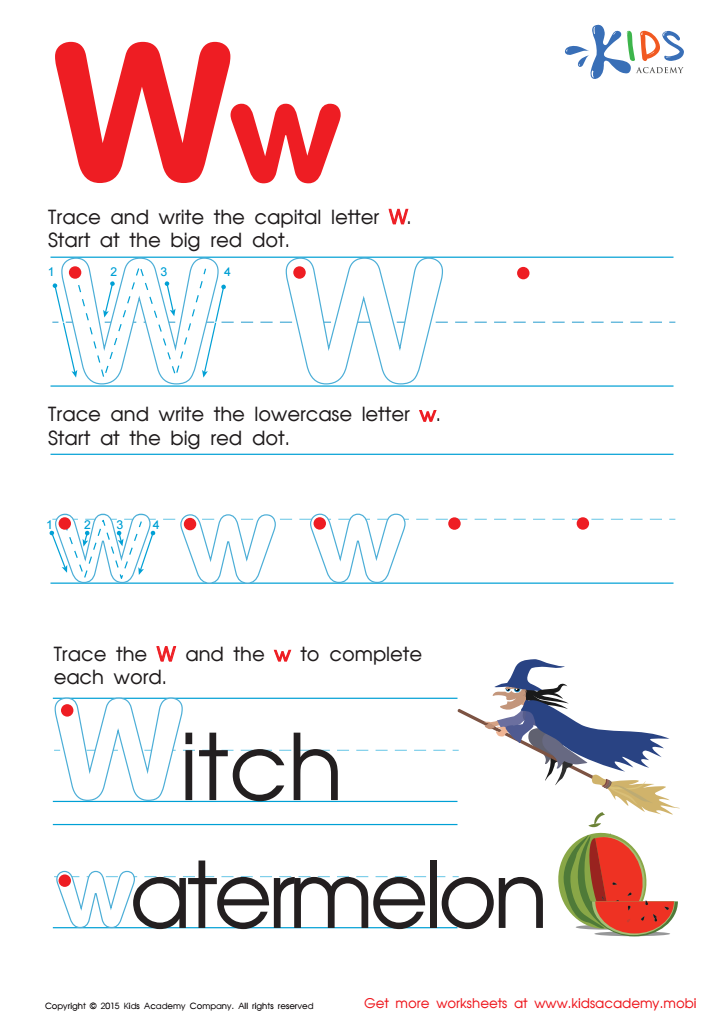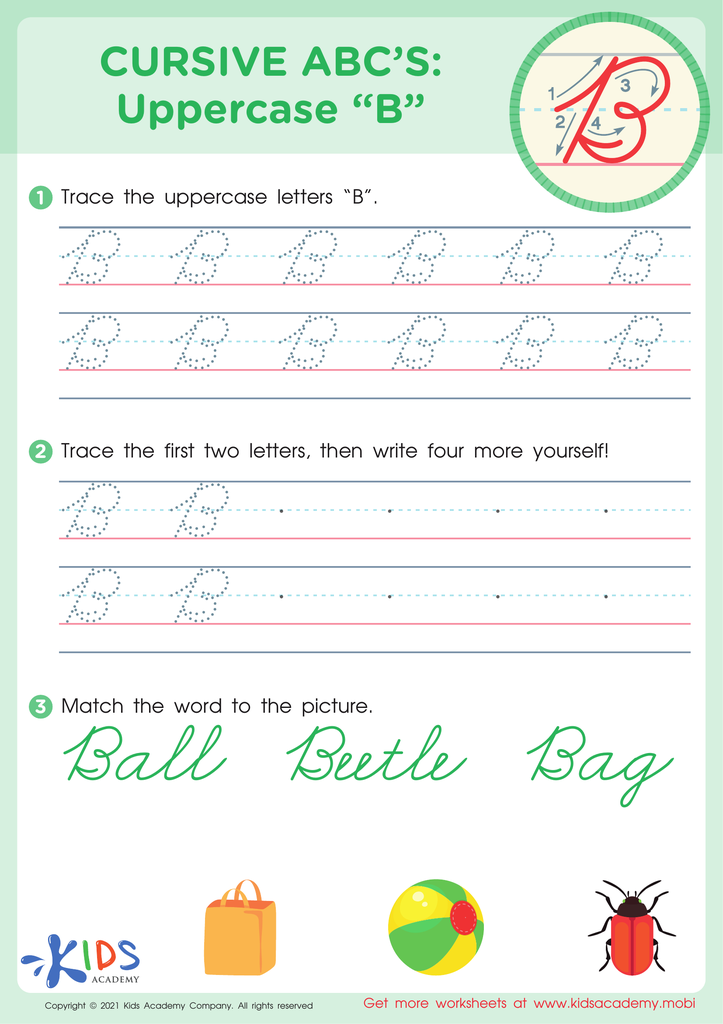Alphabetical understanding Alphabet Worksheets for 9-Year-Olds
3 filtered results
-
From - To
Unlock the key to mastering the alphabet with our engaging Alphabetical Understanding Worksheets designed specifically for 9-year-olds! These worksheets provide fun activities that enhance letter recognition, improve alphabetical order skills, and boost phonetic awareness. Each worksheet is thoughtfully crafted to ensure that children not only learn but also enjoy the process. Rich with colorful illustrations and interactive tasks, these resources encourage independent learning while also being perfect for classroom use. Help your child develop a strong foundation in literacy and prepare them for future reading adventures. Explore our assortment of worksheets today and watch their confidence soar!


Letter E Coloring Sheet


Letter W Tracing Page


Cursive ABCs: Uppercase B
Understanding the alphabet is crucial for 9-year-olds as it lays the foundation for their literacy skills. At this age, students are transitioning from learning to read to reading to learn, making proficiency in the alphabet increasingly essential. First, a strong grasp of the alphabet enhances their reading abilities, enabling them to decode words more effectively. This skill is fundamental, as it allows children to access a wider range of texts and expand their imagination and knowledge.
Moreover, understanding the alphabet fosters spelling proficiency and reinforces phonetic skills. This is vital when students begin to write more complex sentences and paragraphs. Mastery of the alphabet also supports vocabulary development, as children learn to recognize and form new words, enriching their language skills.
Additionally, a good understanding of alphabetical order improves organizational skills not only in reading and writing but also across subjects, preparing them for tasks such as using dictionaries and glossaries. By investing time and resources in bolstering alphabetical understanding, teachers and parents can support children in becoming confident, competent readers and writers, ultimately paving the way for success in their academic journey and beyond.

 Assign to My Students
Assign to My Students














